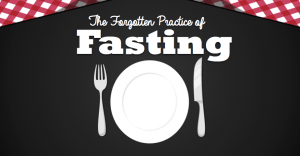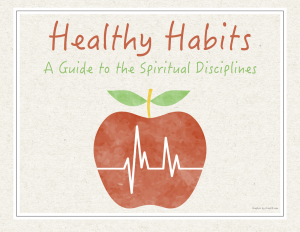I hope that our brief introduction to fasting last week left you hungry for more – in both senses of the word. I hope that you’re hungry to learn more about fasting and I hope that you’re hungry because you actually tried fasting. And if you did, I’d sure be interested in hearing about your experience.
Now, I know we read that verse last week about how we aren’t supposed to make a big show about our fasting – we’re not to try to look miserable and disheveled so people can tell that we’re fasting. Fasting is supposed to be something just between you and God. But that’s not to say we should never talk about our experiences in fasting.
Jesus is just telling us not to fast with the wrong motives. We’re not supposed to fast just to try to appear righteous to everyone else around us. We need to do it for the proper motives. But He’s not saying to never talk about it. And maybe that’s why fasting is so foreign to us – because the handful of Christians who do fast, never talk about it.
So if you’ve tried fasting before – even if it was just once – I’d love to hear about it! I think it would be awesome to see fasting once again become a normal, expected part of the Christian life (much like Bible reading and prayer). And to not see it just some foreign, strange ritual they did back in Bible times.
Because fasting is such a healthy habit! We talked last week about how fasting reminds us how desperate we are for God. The hunger we feel in the pit of our stomach when we fast is a physical reminder of a spiritual reality. Our body’s physical dependance on food reminds us of our spirit’s dependance on God. Like Jesus says in John 6:35…
Jesus replied, “I am the bread of life. Whoever comes to me will never be hungry again. Whoever believes in me will never be thirsty.” John 6:35
Jesus is saying that apart from God we have no life. He is the source of life. He gives us everything we need to live abundantly and eternally. We are absolutely dependant on Him. And fasting is a great way to remind ourselves of that.
And that’s just one of the benefits of fasting! That’s probably a good enough reason in itself, but today I want to dig a little deeper and point out even more reasons why fasting is such a healthy habit. There are several reasons I think, why this spiritual discipline has been practiced by the men and women of God for centuries.
Leave a Comment

